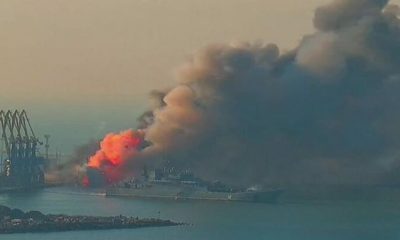International
Just How Dirty Will the War in Ukraine Get if Putin Senses Defeat?
Published
4 years agoon
By
Adubianews
President Biden has warned that Vladimir Putin is actively considering using chemical weapons in his invasion of Ukraine. That may be surprising to some, but it shouldn’t be. Moscow has been engaging in a dangerous game of escalation. The logic that existed prior to the conflict is just as strong today: Russia is periodically forcing a scenario where it must either escalate or risk acknowledging defeat by backing down in Ukraine. Some have found comfort in the fact that Russia has not yet used chemical weapons, suggesting that any threat to do so may well just be a bluff. This is almost certainly misplaced.
At the start of the conflict, Russia was out to quickly and decisively decapitate the Ukrainian government and seize Kyiv. Russia wanted a swift military maneuver that would precipitate in Ukraine’s surrender. When that was not forthcoming, Russia engaged in further escalatory military action in the country’s east and south. After facing unexpectedly stubborn resistance, Russia’s campaign took an increasingly dirty turn. Hospitals, theaters, schools, and more are targets in Russia’s quest to capture Ukraine, as is the growing list of individuals Russia wants eliminated. As this too stalls—and with the prospect of urban war looming large—it appears all too likely another escalation may be on the way.
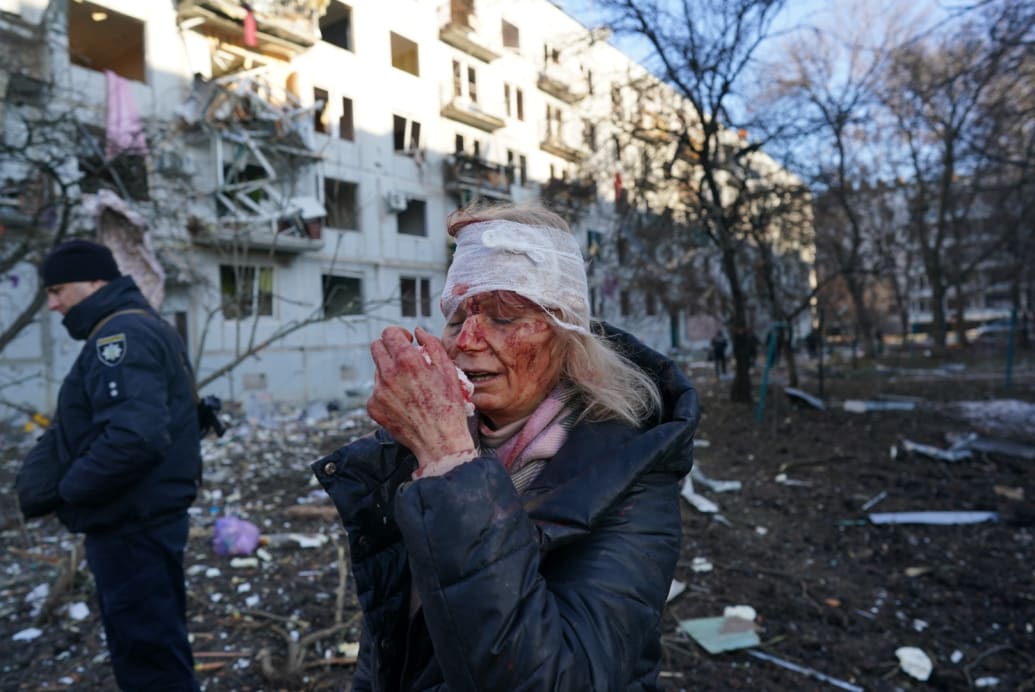
Image depicts graphic content) A wounded woman, named locally as Olena Kurilo, is seen after an airstrike damages an apartment complex outside of Kharkiv, Ukraine on February 24, 2022.
Wolfgang Schwan/Anadolu Agency/Getty
As the war revolves increasingly around capturing urban environments and damaging supply chains, this conflict will lead to increasingly large numbers of civilian casualties. Some suggest that urban warfare may be a “nightmare” for Russian forces. There’s a certain logic to the argument in a traditional conflict, where soldiers are bound by laws of military force that constrain unethical behavior in war. That logic breaks down when facing an adversary that feels little compunction about rendering a city vulnerable to mass bombardment, food and water shortages, chemical weapons attacks, or worse.
For now, the worst acts appear off the table, but it should surprise no one if they come on later. Putin has been laying the groundwork for options that he later intends to use. Prior to the invasion, Russia accused the United States of smuggling chemicals into Ukraine, with Russian separatists in the Donbas region repeating the claim. This may seem like a bizarre accusation, but it makes sense when you realize that this was the foundation necessary to provide a just cause for war. Their accusations are not limited to just chemical weapons, but were aimed toward biological and nuclear weapons as well.
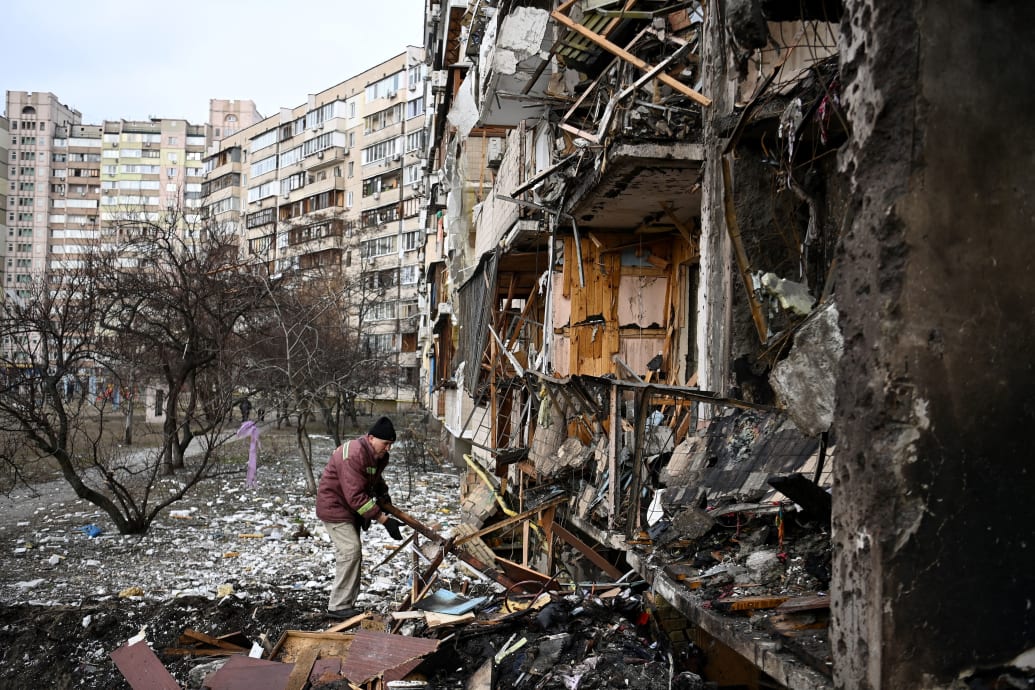
A man clears debris at a damaged residential building at Koshytsa Street, a suburb of the Ukrainian capital Kyiv, where a military shell allegedly hit, on February 25, 2022.
DANIEL LEAL/Getty
What does this mean for the war in Ukraine? Well, it depends. If Russian forces are able to slowly win this war under current conditions, then Putin might decide he does not need to escalate. What such a victory would mean, however, is likely to be fungible. The easier it is for Putin to declare victory and go home, the better.
We should be most on guard against those escalatory acts when it appears as though the Russian advance is stalling or even in retreat. Putin has put himself in a situation where if he loses this war, he may well lose everything. If he believes his regime’s stability is contingent on victory, then we should not put it past the Kremlin to escalate this war in a substantially dirtier direction. What shape they may take only requires a little imagination.
If a chemical weapon is used, Russia will almost certainly try to shift blame for the attack on the Ukrainian forces or connect it to the US or NATO. Perhaps Russian forces will suggest that Ukrainians were improperly handling the weapons when they went off. Maybe Russia will claim that its forces were targeting a chemical weapons depot after obtaining intelligence of an imminent future attack on their own forces. Perhaps they will even claim that it was a NATO false flag operation. Whatever form it takes, Russia will position itself as either a victim or a reluctant party engaging in a preemptive strike. Russia will want to appear to be the good guy for its domestic audiences, even as it causes Ukrainians to suffer inhumanely cruel deaths on a mass scale. Perhaps they’ll even offer humanitarian aid and assistance, just to put salt into freshly open wounds.
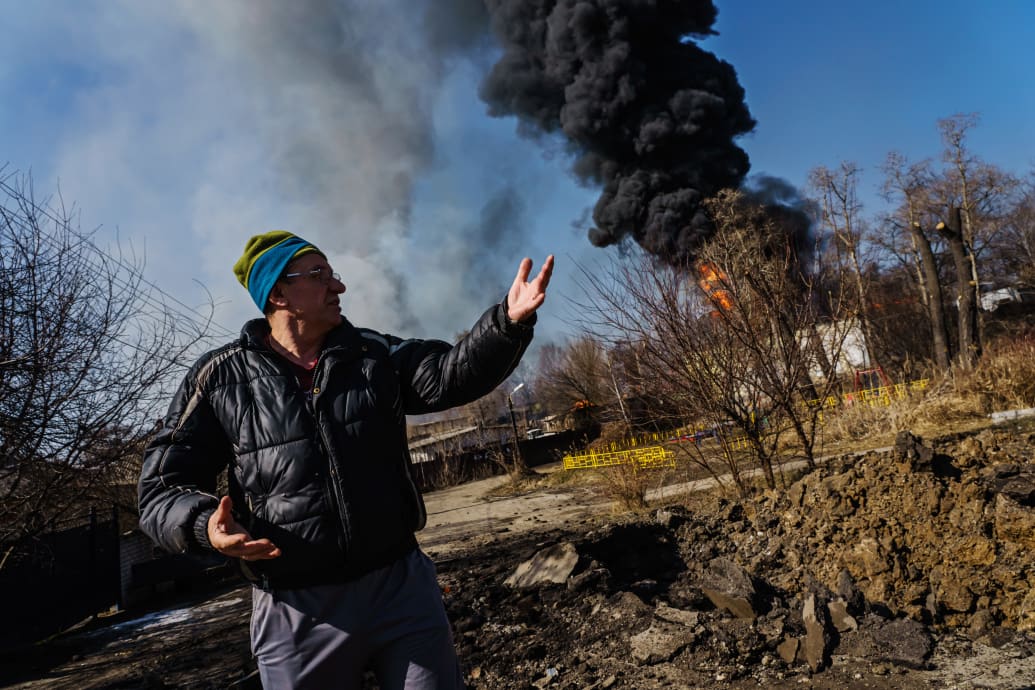
A man shows a fresh crater after Russian bombardment hit several times in the area, in Moskovskyi district in Kharkiv, Ukraine, Friday, March 25, 2022.
Marcus Yam/Getty
A less explored idea is that Russia may want to use captured Ukrainian nuclear reactors to acquire local fissile material necessary for the construction of a dirty bomb. Assuming the radioactive material used to make the bomb is traceable, it would give off the false appearance of being of Ukrainian manufacture. Such a move would allow them to attempt to justify their previously baseless accusations, regardless of whether they would seek to use the device themselves.
But now we are getting too far ahead of ourselves. Those types of escalation would mean both that the war in Ukraine is going very badly for Russia and Putin is willing to risk further escalation with the US and NATO. If the people in the Kremlin really do believe that Ukraine may give into their demands, then we can expect that Russia will hold off. How much that is true appears up in the air. Therefore, such an option is likely to remain speculative for the time being.
Then what can we expect? For now, much of the same but with increasingly more gruesome news stories on how Russian forces are acting in this war. There will be more attacks on infrastructure, emergency first responders, hospitals, schools, transportation, and even journalists. After all, why would Russia allow hospitals to continue to take care of an enemy’s wounded, enabling them to fight another day? Why allow roads, highways, and railroads to continue to resupply their enemy with both military and nonmilitary aid? Once upon a time, the world collectively decided what was, and was not, acceptable practices in war. Russia has, historically and today, demonstrated it cares little for global opposition to its wartime behavior.
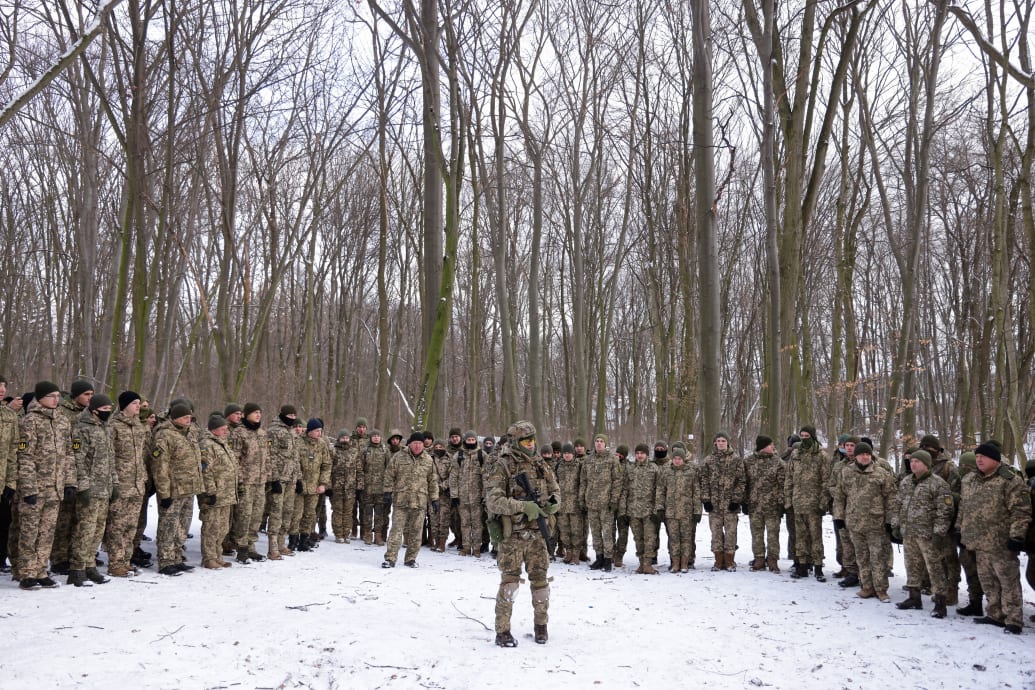
Civilian participants in a Kyiv Territorial Defence unit train on a Saturday in a forest on January 22, 2022 in Kyiv, Ukraine.
Sean Gallup/Getty
So what can we do about this?
We must continue to add pressure on Russia and provide support to Ukraine. Our pressure should not be so high as to risk an uncontrollable escalation. If Putin ever believes his regime is truly in danger, then all bets are off on what type of behavior Moscow will pursue either in Ukraine or even in the EU and US. At the same time, Putin and his leadership must feel the consequences of this conflict. Thus far we’ve done a good job, but we must not stop there.
If the issue is Putin’s fear that this conflict may damage the Kremlin’s regime stability, perhaps we can offer the carrot of a partial reset in return for withdrawal to antebellum conditions? There is just cause to be concerned that Russia’s escalation may be driven by an all or nothing mentality. As such, that option should never be entirely taken off the table, even as we exert maximum possible pressure on Putin’s regime.
It is also worth considering how we should limit our range of action in Ukraine. That is especially so as it is uncertain that the delicate balance of sanctioning enough to hurt, but not enough to existentially threaten Putin can be met reliably and consistently. It is for this reason that there are those who are proponents of a no-fly zone. This way, at least, future Russian strikes in Western Ukraine will be largely prevented and NATO can severely limit the ability of Russia to engage in air campaigns of terror.
At the same time, such a move is inherently risky. It invites the very real possibility of war between Russia and NATO, particularly as their aircraft intercept one another in Ukrainian airspace. Though there are those that suggest a limited no-fly zone is possible, it is unclear what that would look like and how it could be credible without NATO aircraft receiving authorization to strike down Russian jets. That move could very well lead to an accidental war. We are unlikely to do so unless conditions on the ground become unbearable.
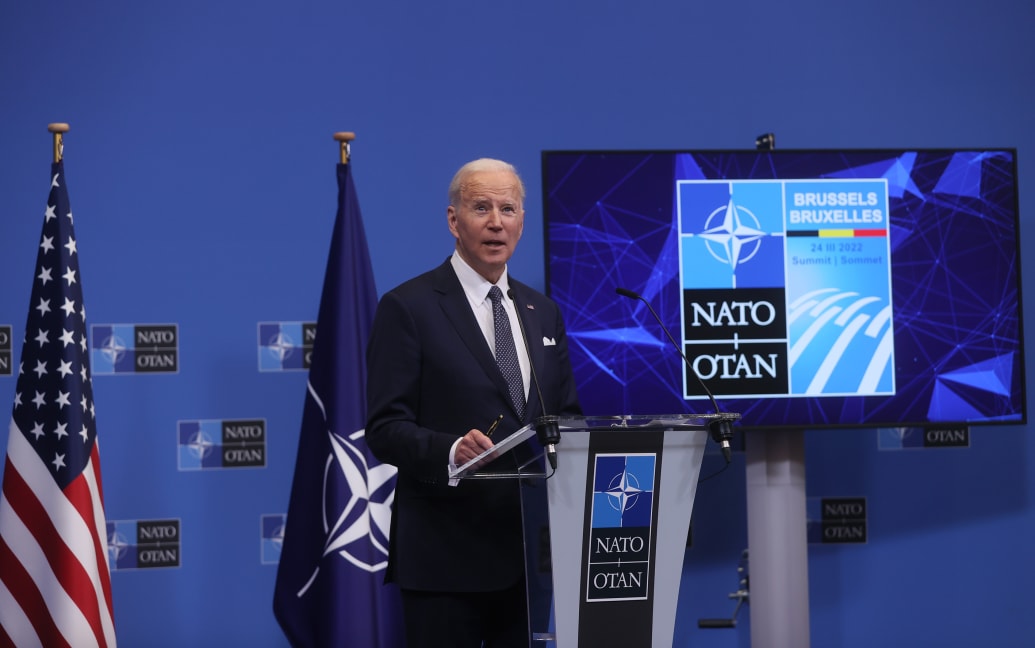
US President Joe Biden holds a press conference at NATO Headquarters in Brussels, Belgium on March 24, 2022.
Halil Sagirkaya/Anadolu Agency/Getty
That is where the tragic irony lies: We may move to establish a no-fly zone only after Russia engages in the very activity that the zone would be designed to prevent. Even then, it would still by no means be guaranteed to be the correct course of action. Perhaps fear of such an escalation on our end will partially constrain Putin’s worst impulses in Ukraine.
Until that time, however, the only thing we can be sure of is that Russia will continue to escalate in Ukraine and that the conduct of its war will become dirtier by the day.







